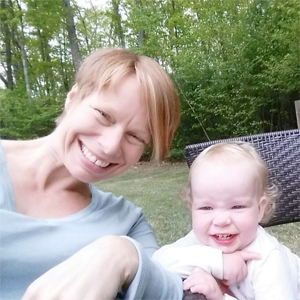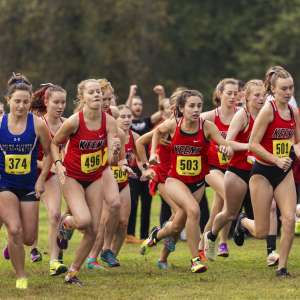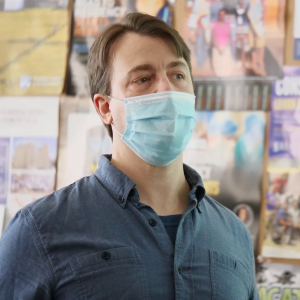Prof. Boyer Wins Grant to Study Food Disorder in Infants

Though it’s considered a rare disease, Food Protein Induced Enterocolitis Syndrome, or FPIES, is extremely heartbreaking because it affects infants, causing them to have sometimes violent reactions to much of the food they eat. Not a lot is known about the condition, though doctors and allergists agree that it seems to be increasing. So it’s good news that Assistant Professor of Health Science Jeanelle Boyer recently secured a grant from The FPIES Foundation to study the disease.
Her motivation is personal. “For her first 16 months, my daughter reacted to just about every food that she tried to eat,” Dr. Boyer explained. “Currently at 22 months, she has about 10 foods that she now tolerates. … Her reactions have ranged from acute vomit to shock-type reactions to milder reactions that involve skin rashes and frequent diarrhea with mucous/blood. The worst part, though, is that the reactions create so much discomfort. It broke my heart to see her squirming in pain all night because her belly hurt. The disease is strange in that some babies only have one or two triggers, while other babies are allergic to all foods—and no one really knows why.” After a food reaction, many babies with FPIES end up in the hospital to manage the symptoms. There is no real cure or treatment.
As a microbiologist, Dr. Boyer suspects that microbiomes in the baby’s gut play a role in FPIES, so she will compare the microbiomes of FPIES babies with healthy babies, hoping for insight about what causes the disease. “If I find that the microbiome does play a role, then I think there is definitely an opportunity for prevention and treatment,” she said. “Data may show that certain beneficial microbes are lacking or that certain ‘bad’ microbes are too abundant. If there are too many of the bad guys, something like antibiotics may even help. If certain microbes are missing, it could open up opportunities for designing new probiotics or for exploring the use of fecal transplants to help these babies.”
Dr. Boyer will begin by asking parents to complete a short survey about their babies allergies and about conditions that could possibly affect the babies’ gut microbiomes. Parents will send a fecal sample straight from their baby’s diaper to UBiome for sequencing. She’ll analyze and compare the data next spring and early summer and have some results by the end of summer. If you’re a parent of a FPIES baby and would like to participate, please contact Dr. Boyer.
Stay tuned. …





